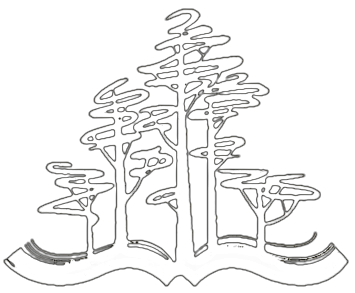Summer School on the Russian Literature. 2018.
Vol. 14. № 4
This article is devoted to the problem of objectivity of „Notes by Ekaterina Aleksandrovna Sushkova (Khvostova)“, which, in turn, are an early source about the life and work of Mikhail Lermontov. The author examines the objectivity of E. A. Sushkova, the reliability of information, the issues of the authenticity of addressing the „Sushkovsky“ cycle of Mikhail Lermontov, the peculiarities of the publication of the text of „Notes“ from 1869 to 1928.
Keywords: „Sushkovsky“ cycle, notes, M. Yu. Lermontov, „Vestnik Evropy“, poetry.
Keywords: „Sushkovsky“ cycle, notes, M. Yu. Lermontov, „Vestnik Evropy“, poetry.
Violetta Arstanova
Notes by E. A. Sushkova (Khvostova)
On the issue of the objectivity of the source
On the issue of the objectivity of the source
This note clarifies the commentary on Ivan Goncharov’s novel „Frigate 'Pallas'“, two essays which accompany the novel („Two cases from the marine life“ and „From the memoirs and tales about sea travel“), as well as Goncharov’s letters written during his sea voyage around the world.
Keywords: Goncharov, „Frigate 'Pallas'“, travelog, textology, commentary.
Keywords: Goncharov, „Frigate 'Pallas'“, travelog, textology, commentary.
Alexey Balakin
From the comments on the „Paladian“ texts by I. A. Goncharov
The article reveals the role of texts and images of ancient Mesopotamia in the work of the composer and writer Sergei Prokofiev. The source of the text of his cantata „Seven, They Are Seven“ is established, the origin of the story „The Wandering Tower“ is revealed, the connection of his enthusiasm for Mesopotamian plots with the events of Russian political life in 1917–1918 is shown.
Keywords: S. S. Prokofiev, C. Balmont, „Seven, They Are Seven“, „The Wandering Tower“, H. Winckler.
Keywords: S. S. Prokofiev, C. Balmont, „Seven, They Are Seven“, „The Wandering Tower“, H. Winckler.
Vladimir Emel'yanov
Ancient Mesopotamia in the works of Sergei Prokofiev
The article is devoted to the first autobiography in the history of Kazakh literature: the autobiography by Sabit Mukanov. In the paper, Russian-language text is commented in the wide context of the political and cultural situation of 1930-1950s. Based on the textual analysis, we can define the purposes of creating this
text.
Keywords: Soviet literature, Kazakh literature, literary canon, autobiography, S. M. Mukanov, Dzhambul Dzhabaev, M. Gorky.
text.
Keywords: Soviet literature, Kazakh literature, literary canon, autobiography, S. M. Mukanov, Dzhambul Dzhabaev, M. Gorky.
Yuliya Kozitskaya
Constructing an autobiographical narrative in the work of a soviet national writer
The story „My mektebs“ by Sabita Mukanova
The story „My mektebs“ by Sabita Mukanova
The article is devoted to the comparative analysis of the character of Ivan the Terrible in historical and literary types of narrative. As a material, several historical essays by N. I. Kostomarov and his novel „Kudeyar“ are used. The article also considers the formation of the image of Ivan IV in the works of the historian.
Keywords: N. I. Kostomarov, Ivan IV Vasilyevich (Ivan the Terrible), narrative, plot, character.
Keywords: N. I. Kostomarov, Ivan IV Vasilyevich (Ivan the Terrible), narrative, plot, character.
Maria Lihinina
Historical Prose and Romantic Historiography
The image of Ivan the Terrible in the works of N. I. Kostomarov
The image of Ivan the Terrible in the works of N. I. Kostomarov
The article deals with connections established between B. K. Livshits’ collection „Patmos“ and „Aurora: Die Morgenrrte im Aufgang“ by Jacob Boehme: similarities in imagery, plotlines and citations in both texts are analyzed. This undertaking makes possible a better understanding of the main idea behind „Patmos“ and a more thorough interpretation of links to mystical and mythical plots found throughout the work. One of the most important of such myths is a myth of the island of Atlantis.
Keywords: B. K. Livshits, „Patmos“, J. Boehme, symbolism, mysticism, Atlantis.
Keywords: B. K. Livshits, „Patmos“, J. Boehme, symbolism, mysticism, Atlantis.
Natalia Markova
„Patmos“ by B. K. Livshits and the mystical philosophy of J. Boehme
The paper presents the comparison of two of the three versions of Feofan Prokopovich’s triumphal poem „Epinikion“ which are known nowadays — in Ancient Church Slavonic and Polish. Different versions of the poem are attempted to compare with the East Slavic and the West European literature traditions of the beginning of the Petrine epoch. To this end, „loci communi“, typical for the Russia’s and the West Europe’s literature traditions of the beginning of XVIIIth century, are analyzed.
Keywords: Feofan Prokopovich, „Epinikion“, plurilingualism, versions, comparison.
Keywords: Feofan Prokopovich, „Epinikion“, plurilingualism, versions, comparison.
Artyom Trofimov
Multilingualism in the literary culture of the Peter the Great era
„Epinikion“by Feofan Prokopovich
„Epinikion“by Feofan Prokopovich
Contacts
summerschool@list.ru
В оформлении сайта использованы материалы Freepik.


